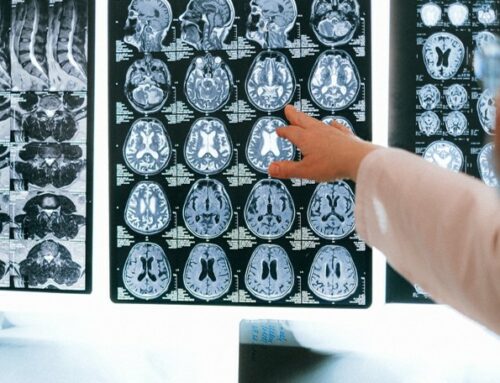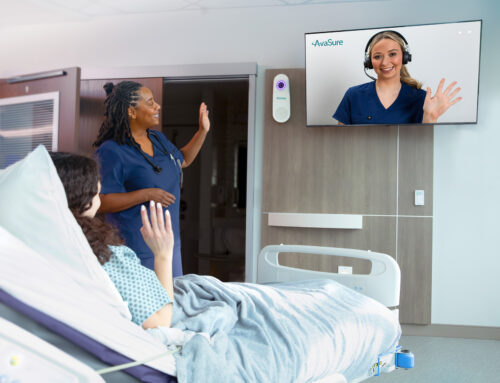By: Ajay Kaul, managing partner at AgreeYa Solutions |

Automation driven by enhancements in artificial intelligence (AI) and machine learning (ML) is becoming an essential component of many businesses and industries. Companies in widely diverse fields are enjoying the many benefits associated with automation. In some cases, automated tools and systems are simply replacing manual processes, freeing up employees for other, more complex tasks. Intelligent automation powered by AI and ML is also being used to enhance businesses in a variety of innovative ways.
In some respects, the healthcare industry has lagged in implementing automated tools and processes. Many healthcare organizations were reluctant to invest in technology and automated systems in favor of more traditional methods and processes. The industry had begun moving toward more reliance on technology and automation before the emergence of COVID-19. The effects of the pandemic have led to an increased focus on automation and sped up its adoption in healthcare.
Challenges to Providing High-Level Healthcare
The healthcare industry has been faced with multiple challenges as it attempts to provide society with adequate care. In the aftermath of COVID-19, there have been obvious stresses on the healthcare system. The capacity and efficiency of healthcare providers are threatened by these issues and others that directly or indirectly impact patients. Following are some of the major issues facing the healthcare industry that can be addressed through automation.
- Staffing shortages: The lack of qualified personnel to fill open positions in the healthcare field is putting severe pressure on the system. Patients are forced to endure extended waiting periods for elective surgeries and other procedures that can negatively affect their outcomes.
- Rising healthcare costs: Healthcare costs are rising, as anyone who has interacted with the system recently has surely noticed. In some cases, prohibitive costs force prospective patients to make tough decisions that force them to choose between their physical and financial health.
- Inaccurate or delayed documentation: Traditional methods with paper-based processes are time consuming and increase the risk of human error. Not only does it require staff to transfer information from patients into an electronic record, but it also creates a margin of error if the writing is illegible. Additionally, paper-based processes slow down the time in which a healthcare organization can share out data with the patient.
- Access to necessary assets: Ensuring staff have access to assets needed to complete the task at hand is critical to operating efficiently as well as ensuring positive patient outcomes. However, locating equipment is a common challenge. Additionally, poor asset tracking can result in additional spend to purchase extra equipment which might not be needed.
- Invoicing and payment processing: Patients are responsible for a larger percentage of modern healthcare costs. It is exponentially more difficult to collect fees from the patient community than it is when working with a limited number of insurance companies.
- Evolving regulations: Healthcare regulations are constantly evolving, making it difficult for even the best trained humans to keep up with the changes. This issue can slow down both patient care and billing as healthcare teams negotiate new regulations and prerequisites for care or insurance coverage.
- Utility compliance reporting: Many laboratories still handle and track data on paper or in segmented worksheets or logbooks. This approach requires a lot of manual time to check and review the material to maintain data integrity and compliance with regulatory requirements.
- Delayed discharge: Poor communication or lack of visibility into a patient care continuum can lead to an extended hospital stay, raising costs and reducing beds needed to care for new patients.
- Increasing reliance on telehealth solutions: The increase in the use of mobile devices and healthcare-related apps is a disrupting force in the industry. Patients expect their protected health information (PHI) to be safe and secure when interacting remotely with healthcare providers.
- Connecting a fractured healthcare system: Healthcare in the U.S. is comprised of many independently operated components. This fact often makes it difficult to coordinate care when patients need to avail themselves of more than one healthcare facility.
Addressing Healthcare Challenges with Automation
Automation is impacting the healthcare field in two distinct ways. Many manual processes performed by healthcare professionals can be streamlined and made more efficient through automation. Additionally, new procedures and elevated levels of healthcare are possible through the use of AI-powered tools and software.
Following are some of the areas where the use of intelligent automation can make a big difference in how healthcare is delivered. It promises to deliver better patient results while making the system more efficient, less expensive, and predictable for both healthcare customers and providers.
- Controlling costs: One of the primary reasons executives in the healthcare field implement automated processes is to control costs and save money. Implementing intelligent automation throughout the healthcare system improves efficiency, reduces errors and improves patient outcomes. Healthcare providers can operate with a leaner staff when automation is deployed and save substantially on personnel costs.
- Facilitating patient scheduling and intake material: Automated scheduling tools enable healthcare professionals to make more efficient use of their time. Rather than pour through reams of paper records, an automated system puts all the patient information necessary to schedule appointments and procedures in a centralized and easy-to-access format.
Allowing patients to complete the intake forms digitally reduces the risk of errors and saves on manual labor for updating the database after the fact. Additionally, having the paperwork digitally versus being handed around via paper records increases patient privacy. Any time spent learning how to use these systems is quickly repaid by the ease with which scheduling is performed.
- Eliminating human errors: Human errors are at the root of many of the problems associated with the dissemination of erroneous patient information. Staffing shortages have exacerbated this problem as stressed healthcare workers are expected to handle a greater load of patients with limited assistance. Automated processes that reduce the possibility of human error benefit patients and healthcare providers.
- Enabling more efficient data access: It can be extremely difficult and time-consuming for healthcare professionals to manually access patient data stored by another facility. Intelligent automation can provide systems that eliminate the need for multiple phone calls or back and forth correspondence to achieve the desired results. With automated systems, healthcare providers can access patient data on their computer with a few clicks, paving the way for faster and more effective treatment.
- Strengthening data privacy: Data privacy is important in all industries but is especially critical in the healthcare field. The methods with which a patient’s protected health information is handled are governed in the U.S. by regulations drafted in the Health Insurance Portability and Accountability Act of 1996 (HIPAA). Failure to comply with these regulations puts patient data at risk and can result in substantial fines for the offending organization. Automated systems are better suited to provide essential privacy and security for patient data.
- Streamlining the billing and claims processes: The medical billing and insurance claims processes are extremely complicated and are constantly changing. Billing departments are hard-pressed to keep up with the number of claims using traditional manual methods. Intelligent automation using technologies like natural language processing (NLP) streamlines the process and reduces the occurrence of errors. Using these systems results in faster and more accurate statements and claims which benefit the healthcare facility and its patients.
- Improving patient satisfaction: The combination of the previous improvements in the healthcare delivery process leads to an enhanced patient experience and a greater level of satisfaction with a provider. The level of competition in the healthcare industry makes it imperative for providers to retain patients, and happy customers are likely to return when they need treatment or care. Failure to adopt automated systems and processes will inevitably lead to dissatisfied patients who will look for alternative healthcare providers.
Conclusion
Automation can help healthcare providers bridge gaps in the level of care and services they offer patients. The proper use of intelligent automation can also be instrumental in streamlining the administrative side of the healthcare industry. Healthcare facilities that want to remain competitive and effective in the future need to investigate the available automation solutions and adopt those that make sense for their business.
While automation is not a panacea for every ailment in healthcare, it is a solution for many problems that affect patients and providers alike. Patients want to be able to receive necessary treatment without undue delay. They also want to be sure their health-related information is secure. At the same time, healthcare providers are striving to deliver quality care to their customers while operating efficiently to minimize costs and maximize profits. Implementing intelligent automation addresses the needs of patients and providers. Executives controlling healthcare facilities should be pushing for intelligent automation solutions wherever possible.
 About The Author
About The Author
Ajay Kaul is a visionary leader and trendsetter. As managing partner of AgreeYa Solutions, he has been instrumental in leading the company through solid growth and international expansion for the past 20 years. Kaul has three decades of experience building powerful and innovative solutions for businesses across various industries and verticals. His expertise and knowledge span across enterprise sales management, marketing and strategy, global delivery and mergers and acquisitions. Follow AgreeYa on social media @agreeyasolutions.












